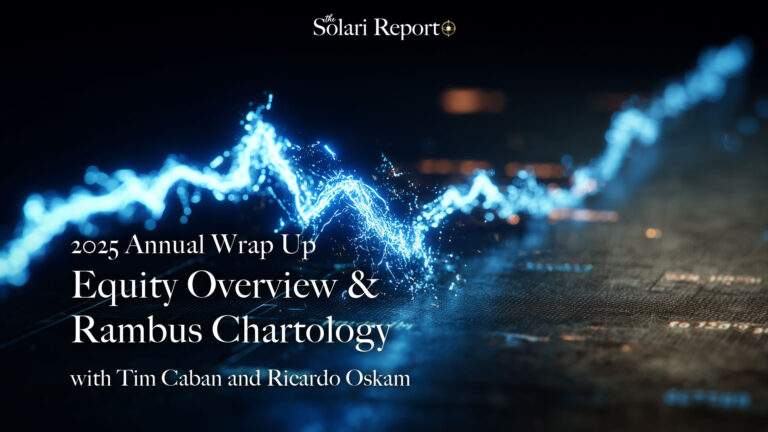Today it emerged that world leaders are to discuss what is being described as “land grabbing” or “neo-colonialism” at the G8 meeting next week. A spokesman for Japan’s ministry of foreign affairs confirmed that it would raise the issue: “We feel there should be a code of conduct for investment in farmland that will be a win-win situation for both producing and consuming countries,” he said.
Olivier De Schutter, special envoy for food at the UN Office of the High Commissioner for Human Rights, said: “[The trend] is accelerating quickly. All countries observe each other and when one sees others buying land it does the same.”
Some of the largest deals include South Korea’s acquisition of 700,000ha in Sudan, and Saudi Arabia’s purchase of 500,000ha in Tanzania. The Democratic Republic of the Congo expects to shortly conclude an 8m-hectare deal with a group of South African businesses to grow maize and soya beans as well as poultry and dairy farming.
Other countries that have acquired land in the last year include the Gulf states, Sweden, China and Libya. Those targeted include not only fertile countries such as Brazil, Russia and Ukraine, but also poor countries like Cameroon, Ethiopia, Madagascar, and Zambia.
De Schutter said that after the food crisis of 2008, many countries found food imports hit their balance of payments, “so now they want to insure themselves”.
Continue Reading Fears For The World’s Poor Countries as The Rich Grab Land to Grow Food























































































































Local is not just about building wonderful communities. It is about real economic warfare – cutting the Tapeworm’s meal off at the root.
Cash Flow #1: Narcotics…lots of money being sucked out of your county that finances the Tapeworm
Cash Flow #2: Government money engineered with the help of officials elected with rigged computer voting
Cash Flow #3: Government reserves and pensions funds — bank deposits and investments to channel to Wall Street
Cash Flow #4: Private bank deposits and investments — more deposits and investments to channel to Wall Street
Cash Flow #5: Takeover of market share of small business/retail market using our monies form Cash Flow #1-#4
Cash Flow #6 Mortgage and other financial fraud
Cash Flow #7 Derivatives on Cash Flows #1-7
Cash Flow #8 Ad revenues resulting from pricing set by our media attention
Cash Flow #9 Donations — to church, school, not for profits….and resulting bank deposits and endowments
And on and on….
If we can not switch the cash flows AWAY from the people we do not want running things and into the people we do want running things….well ALL SOLUTIONS START WITH THIS SHIFT….
WHO CONTROLS THE MONEY IN YOUR WALLET X 300 MM PEOPLE
WHO CONTROLS THE MONEY IN EACH FAMILY X ? FAMILIES
WHO CONTROLS THE MONEY IN EACH COUNTY X 3100 COUNTIES?
THIS IS A CRITICAL BUILDING BLOCK OF THE POWER WE NEED TO IMPLEMENT REAL CHANGE.
Catherine,
I’m reminded of Sun Microsystems Bill Joy and his question, “Do they still need us?”
Do they still need the economic fuel that the American people provide in order to execute their plans. For the economic fuel has always been merely a means to an end, an end which involves power and control. With GATT executed successfully and most of the American enterprise now out of the publics reach, how can the public be impactful using purely economic weapons?
Bert:
My assessment is that, no, the folks at the very top do not still need us. The decision to proceed with GATT reflected that fact.
However, properly managing our transformation to “a world where we are not needed” is much more profitable than not, the absence of proper management is very dangerous (generally, the folks at the top are very afraid of people when they turn. When “the field” turns and locks against rulers or aristocracy, things can be very dangerous) and there are a whole lot of people whose power and money come from managing and they are vested in running the thing out for their careers.
So, we may not be needed, but getting from a world in which we were, to a world in which the fact that we are expendable is fully actualized is quite a long process.
If you have not see the cartoon movie, Monsters, Inc, I strongly recommend it for contemplating some of the issues involved.
Catherine
Catherine,
It seems that the blue collar industry workers and retirees are no longer needed, and that is now, not at some point in the future.
Everytime I do a high level SWOT analysis on the publics situation I develop new reasons to support that we are further along than I previously realized. I think this continues to be the prime reason why I am advocating a stance where we simply don’t run to safety zones, as I ultimately find that all the zones are either non-existent or booby trapped. This is why I’ve continue to conclude that this system must be stopped sooner rather than later, and that the damage can only begin to be reversed AFTER the system is contained.
Shortly, I’ll post some thoughts here on other steps we may consider to complement the suggestion put forward by Solari.
Is anyone still following this discussion, because we’re getting to beef now.
Bert:
I’m still following. This is a good and important convo.
Guy,
Glad you’re still here.. thought I may have lost you. Hope others are checking-in.
So, here are some rough thoughts on various additional courses of action. This is for discussion only at this point, as the goal is leverage these topics in order to engage in a more tangible adult-level conversation.
– Climate Change legislation may raise electricity rates by 90%. Hence, I would argue that the public might want to protest this by ceasing payment of electricity bills. Do you realize how important the electricity grid is? It is the single point of failure for their Technetronic devices (TV, Radio, Internet, etc.) that are critical to perpetrate their Information Operations (ie. mechanisms of control). Cease using electricity and it is only a matter of weeks before the public begins to engage in independent thinking and reverts back to a state much more difficult to control.
– Secure the huge public surplus currently under government control (85,000 Consolidated Annual Financial Reports produced every year showing public asset surplus).
– Confront agents of the technocracy in person (we know who they are). But not like COINTEL actors (with a bullhorn and kids dressed in black), but in a polite, deliberate, professional, no nonsense manner. Have you ever spoken to any of these people in person? I haven’t found one who is anything other than a wimp in person, and who will do anything to avoid a serious adult-level conversation with a responsible intelligent member of the public. They need to understand that the public understands what it is that they are doing to us… the crimes that they are perpetrating.
– Migrate to local support structures across trusted networks (ie. the Solari model). I’m including more than simply food, however, I’m also talking healthcare, legal support, education and the like. Further, we localize ONLY under the pretext that this action is req’d for survival while we cease their plans, as it is critical that GAIA-bots are not allowed to gain ownership of this localization agenda with their humanity vs nature dialectic. This dialectic cannot succeed, as it inherently results in the end of humanity.
– Stop listening and following ALL COINTEL groups and vector leaders. This includes just about everyone in the public domain right now. (See “Total Information Dominance” doctrine from US Military 2020 document).
– Cease acceptance of all manufactured dialectics…. like manufactured scarcity (“scar-city”) of environment, food, energy, finance, etc…. as these techniques amount to the bee keeper poking a stick in the hive to get the bees to fight each other. The ideas of scarcity as a dialectical enemy was manufactured by the Club of Rome.
– Recognize and resist 4th Generational Warfare (4GW) techniques that are already being perpetrated on the public while simultaneously and falsely blaming the public for these acts. This includes manufactured terrorist acts designed to incite domestic fear and violence.
Catherine:
Thank you for that synopsis.
Bert:
I agree that scarcity can be used as a fear technique to get ones to follow an agenda. However – we cannot continue on the path we are on in relation to consumption and the way that we treat our very source(the earth) as a wastebasket and a whore with no inherent value. I think along with questioning the motives of a co-opted sustainability movement it is important to come to terms with the facts that are raised within the arguments. Sorry – but our root views about the earth and our place in it are skewed. And no that doesn’t automatically translate into let’s wipe people off the earth – it means more along the lines of what for example the American Indians said about the way they observed the colonizers carrying themselves – i.e. – disrespectful, arrogant, and violent because of their own insecurity in the world. I personally believe that we are in the midst of a cycle of change that occurs every so many thousands of years(whether it is a sunspot cycle or some other cycle that may or may not be being kept from us) – I am saying ALSO that the way that we have abused the earth has led us to a point where these changes could reduce our chances of survival dramatically.
If we want to understand how finance(the illusory economy) has hijacked and is now dictating to the “real economy” of tangible goods and services, we must first understand the root of this. And that is the way that we view the earth and concurrently other peoples – you know, the “thems” whose resources, labor, etc. required to maintain the empire as the basis of it(source material). That meaning – the economic theories that divorced any inherent value from nature except in as much as what it could translate into for us through human labor. This perspective leads to all kinds of skewed versions of reality and leads to outcomes. This is the basis for both capitalism AND communism – they are brothers of the same philosophical system. We cannot be surprised that the tool(money, finance) that was used to facilitate transactions of real goods and services has now usurped the throne and is now in a position of a dictating oligarchy. It was only a matter of time. Our base theories are flawed. And the reason why a “sustainablity” movement won’t work in the form that is is now is because the same people who created the problems are now the ones who want to make the solution. Their flawed views of reality = let’s not address the root causes of our dilemma, but let’s create solutions that will not call into question the very power relationships that got us into this mess. Or more realistically – the “solutions” are filtered through an entrenched centralized bureaucracy that waters down any meaningful changes that could be made – because making the real changes would mean reducing their very powers to make changes and be dictatorial.
Everything that you listed as “points throughout history” are actually points in which the empire changed and adapted, became more centralized yet was still operating from the core value systems that formed its basis. Anything that takes the land and kills the original owners is flawed to begin with. The justification for this initially was a form of elitism – elitism of a chosen people taking what was rightfully theirs from pagans and heathens(meaning lower sub-humans). I don’t know how one can see the elitism of the New World Order and not see that the fundamental ideological groundwork has been there since the start – even before the foundations, or the Federal Reserve, or GATT or NAFTA or . . . fill in the blanks.